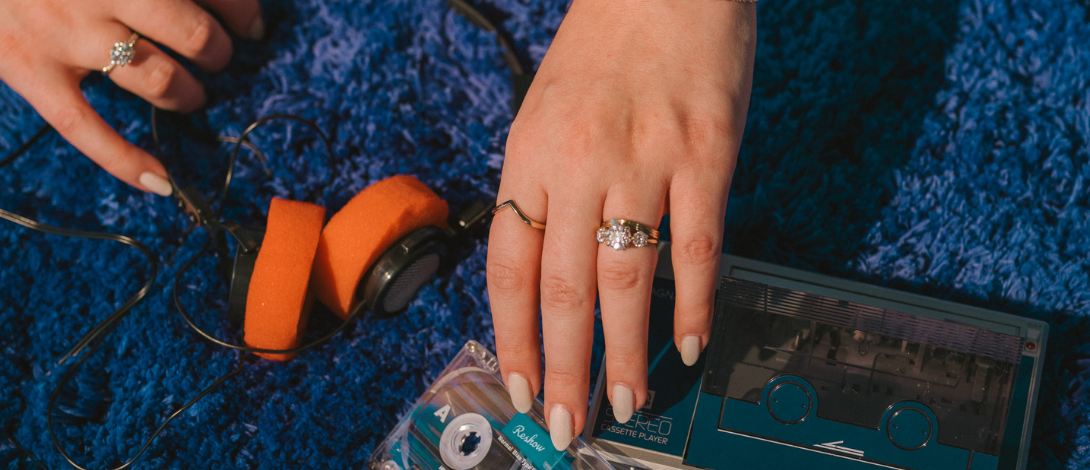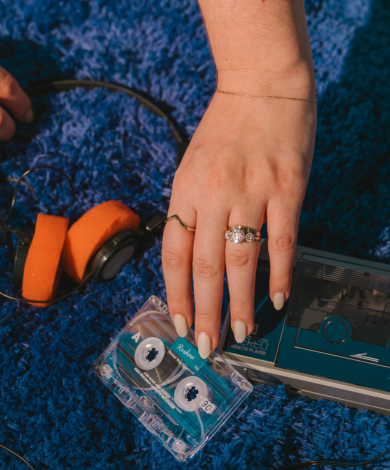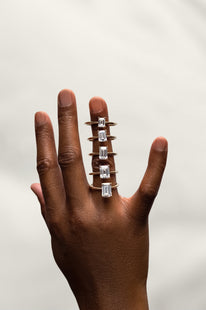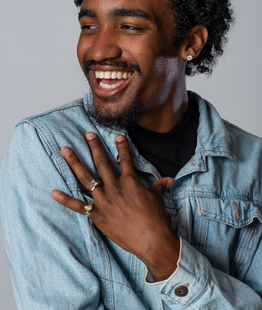When you think of an engagement ring stone, you probably think of it in terms of carat weight, right? That's the traditional way that diamonds have always been measured. Lab-grown stones can be a little different, though - here's everything you need to know.
Face size vs carat weight
Lab-grown diamonds are measured just like mined diamonds - by how much they weigh, not how large they look. This can get a little confusing for clients when they're trying to compare diamonds by cut. A 2 ct emerald cut, for instance, looks a lot smaller than a 2 ct pear or marquise diamond. That's because emerald cuts are deep, and they hold their weight under the face, so to speak, where you can't see it. Pear and marquise are comparatively very shallow, so they hold more of their weight on the face, where you can see it. While they weigh the same, their "face-up" size is very different.
Moissanite and lab-grown gemstones
Unlike lab-grown diamonds, moissanite and other lab-grown gemstones like ruby or sapphire are measured and sold by their face size. That means that you don't need to worry about the weight of the stone at all - you know exactly how big it will look based on its measurement.
Converting carat weight to millimeters
Because people are most familiar with carat weight measurements, our moissanite clients often ask us to convert a certain carat weight to a mm face size - for instance, how big a 2 carat emerald cut diamond would be in millimeters. Unfortunately, it's almost impossible for us to give truly accurate conversions, because each and every diamond is a slightly different size, even at the same carat weight. This is especially true for elongated stones like oval and emerald cuts, which could have a million different proportions. The proportion of length to width is called the diamond's ratio (length divided by width). Higher number ratios are skinner stones, and lower ratios are wider.
If you're interested in a moissanite or a lab-grown gemstone for your engagement ring, we recommend focusing on the millimeter face-up size that you like, rather than the carat weight. You'll get a much more precise idea of what your stone will look like that way, since that's how the stone is measured.
How to pick your stone size
We recommend checking out our printable PDF with true to size stone sizes. This PDF has two pages, one with common moissanite sizes and one with diamond sizes. Like we talked about, elongated cuts come in a variety of ratios. This PDF only contains one ratio.















